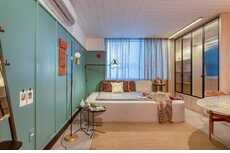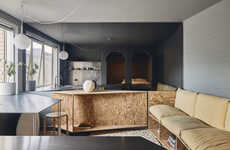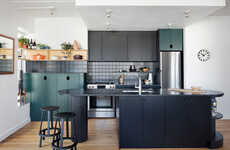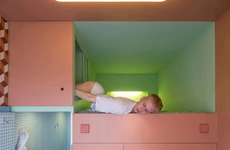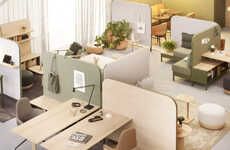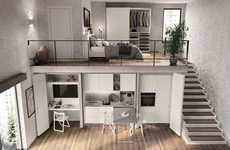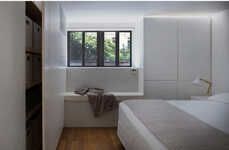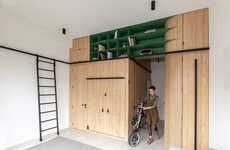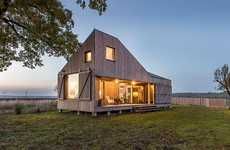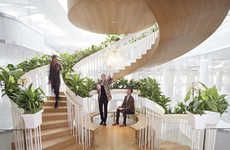
The Zoku Loft Caters to Both Work and Relaxation
Rahul Kalvapalle — May 25, 2015 — Art & Design
The Zoku Loft is a 25 square meter micro-apartment that uses intelligent design to function as a home, leisure space as well as office depending on the need of the hour.
The loft separates living and functional space, and features a built-in unit on one end that rises up either side of the entrance passageway and across the top. The facility includes plenty of slide-out storage space, shelving and space for home electronics. Meanwhile the sleeping space can be hidden from view during formal work sessions using wooden screens.
The Zoku Loft is part of a growing movement in architecture to cater to people's changing lifestyles. As Zoku co-founder Hans Meyer says, "boundaries between work and leisure are fading, and blurring borders have made people more mobile than ever."
The loft separates living and functional space, and features a built-in unit on one end that rises up either side of the entrance passageway and across the top. The facility includes plenty of slide-out storage space, shelving and space for home electronics. Meanwhile the sleeping space can be hidden from view during formal work sessions using wooden screens.
The Zoku Loft is part of a growing movement in architecture to cater to people's changing lifestyles. As Zoku co-founder Hans Meyer says, "boundaries between work and leisure are fading, and blurring borders have made people more mobile than ever."
Trend Themes
1. Hybrid-living Spaces - The rise of hybrid-living spaces presents an opportunity for architects and designers to create innovative solutions that cater to people's evolving lifestyles.
2. Intelligent Design - Integrating intelligent design into micro-apartments enables multifunctional spaces that adapt to the changing needs of individuals, offering a disruptive innovation opportunity in the real estate and interior design sectors.
3. Flexible Workspaces - The demand for flexible workspaces within residential environments is opening up new opportunities for coworking companies and property developers to create hybrid live-work environments that boost productivity and work-life balance.
Industry Implications
1. Architecture - The evolving trend of hybrid-living spaces provides architects with the opportunity to design innovative, multifunctional buildings that meet the changing needs of individuals and communities.
2. Real Estate - Intelligent, hybrid-living spaces present a disruptive innovation opportunity for the real estate industry, offering unique selling points and meeting the demands of the modern lifestyle.
3. Interior Design - With the rise of hybrid-living spaces, interior designers have the chance to create versatile, functional environments that seamlessly integrate home and work life for increased comfort and convenience.
6.1
Score
Popularity
Activity
Freshness


